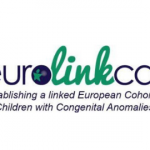
Fostering research excellence
in EU Outermost Regions


Fostering research excellence
in EU Outermost Regions
Published 18.12.2019

La Reunion
The project main objective is to establish a European network of standardised datasets containing information on the mortality, health, educational achievements and needs of children with congenital anomalies.
Abstract of the project:
Over 130,000 children born in Europe every year will have a congenital anomaly (CA; birth defect). These CAs, which are often rare diseases, are a major cause of infant mortality, childhood morbidity and long-term disability.
EUROCAT is an established European network of population-based registries for the epidemiologic surveillance of CAs. EUROlinkCAT will use the EUROCAT infrastructure to support 21 EUROCAT registries in 13 European countries to link their CA data to mortality, hospital discharge, prescription and educational databases. Each registry will send standard aggregate tables and analysis results to a Central Results Repository (CRR) thus respecting data security issues surrounding sensitive data. The CRR will contain standardised summary data and analyses on an estimated 200,000 children with a CA born from 1995 to 2014 up to age 10, enabling hypotheses on their health and education to be investigated at an EU level. This enhanced information will allow optimisation of personalised care and treatment decisions for children with rare CAs.
Registries will be supported in using social media platforms to connect with families who live with CAs in their regions. A novel sustainable e-forum, “ConnectEpeople”, will link these families with local, national and international registries and information resources. ConnectEpeople will involve these families in setting research priorities and ensuring a meaningful dissemination of results.
Findings will provide evidence to inform national treatment guidelines, such as concerning screening programs, to optimise diagnosis, prevention and treatment for these children and reduce health inequalities in Europe. An economic evaluation of the hospitalisation costs associated with CA will be provided.
The CRR and associated documentation, including linkage and standardisation procedures and “ConnectEpeople” forum will be available post-EUROlinkCAT thus facilitating future local and EU level analyses.
See members of consortium